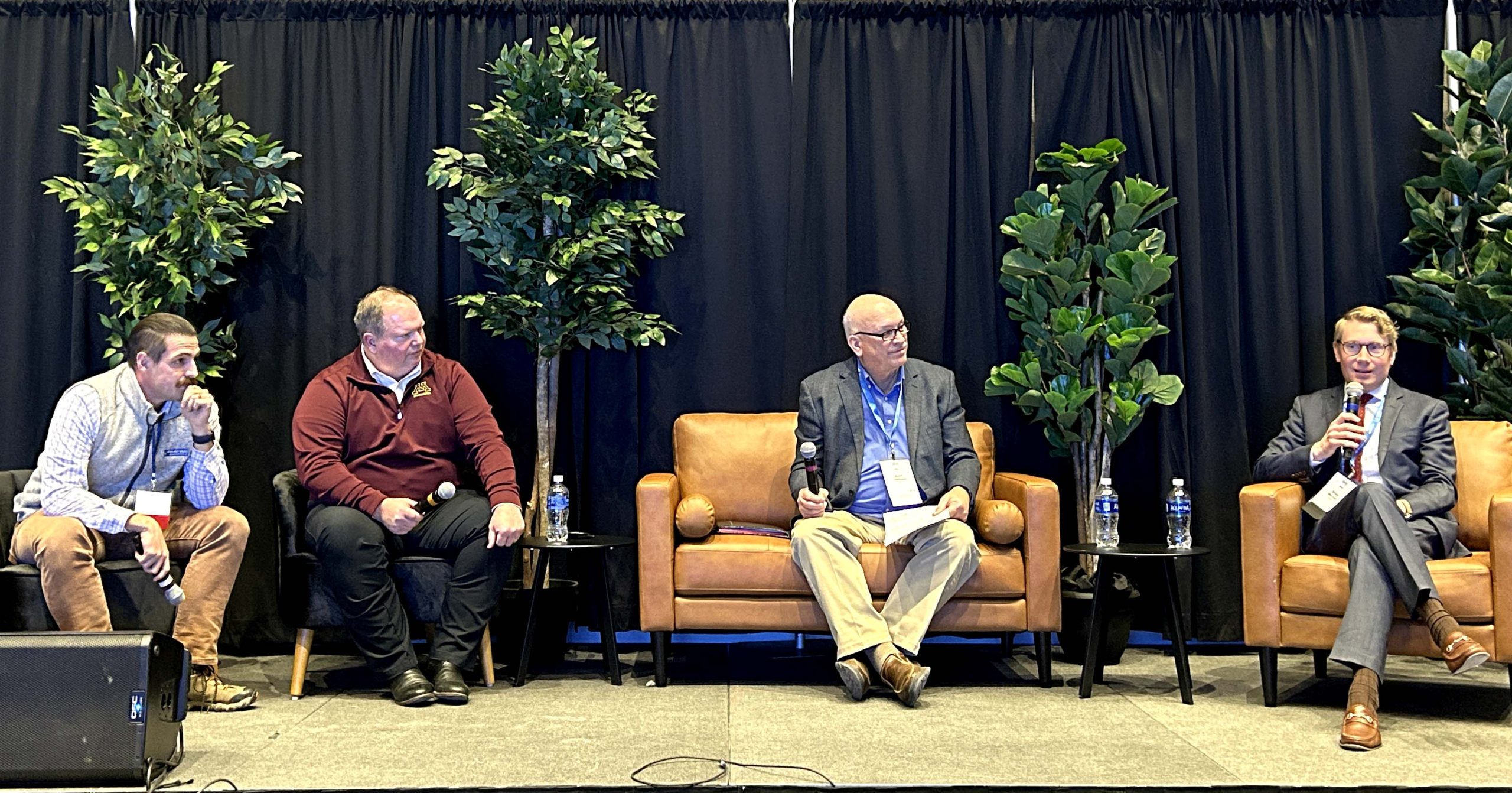Minnesota Bio-Fuels Association’s (MN Bio-Fuels) executive director, Brian Werner, was among the participants at a panel at the 2024 Minnesota Ag Expo in Mankato on Jan 18.
Titled, Lowering the Carbon Footprint of MN’s Biofuels, the panel also featured Matt Herman, chief officer, demand and advocacy, at the Iowa Soybean Association, Mike Reese, renewable energy director at the University of Minnesota West Center Research and Outreach Center. The panel was moderated by Kent Thiesse, senior vice president and chief ag loan officer at MinnStar Bank.
During the panel discussion, Werner explained the current lifecycle emissions of corn ethanol and described the ways Minnesota ethanol can achieve net-zero emissions by 2050:
1. Ethanol Plant Production Technologies and Efficiencies: This includes using renewable energy from wind turbines and solar panels, combined heat and power and renewable natural gas.
2. Climate Smart Agriculture: This includes conservation practicies, 4R nutrient management, reduced tillage, cover crops and green fertilizer.
3. Carbon Capture, Utilization and Sequestration: He said many ethanol plants are already utilizing CO2 as an added-value co-product for beverage carbonization and livestock processing. Utilizing or sequestering carbon can immediately reduce the Carbon Intensity (CI) score of corn ethanol.
“All Minnesota Bio-Fuels Association member plants have committed to producing “net-zero” ethanol by 2050,” Werner said.
He also explained to the panel and the audience how lifecyle emissions for corn ethanol following the adoption of the three aforementioned methods would be between -12 and 13 grams of CO2-equivalent per megajoule of energy.
Read Werner’s full presentation here.


